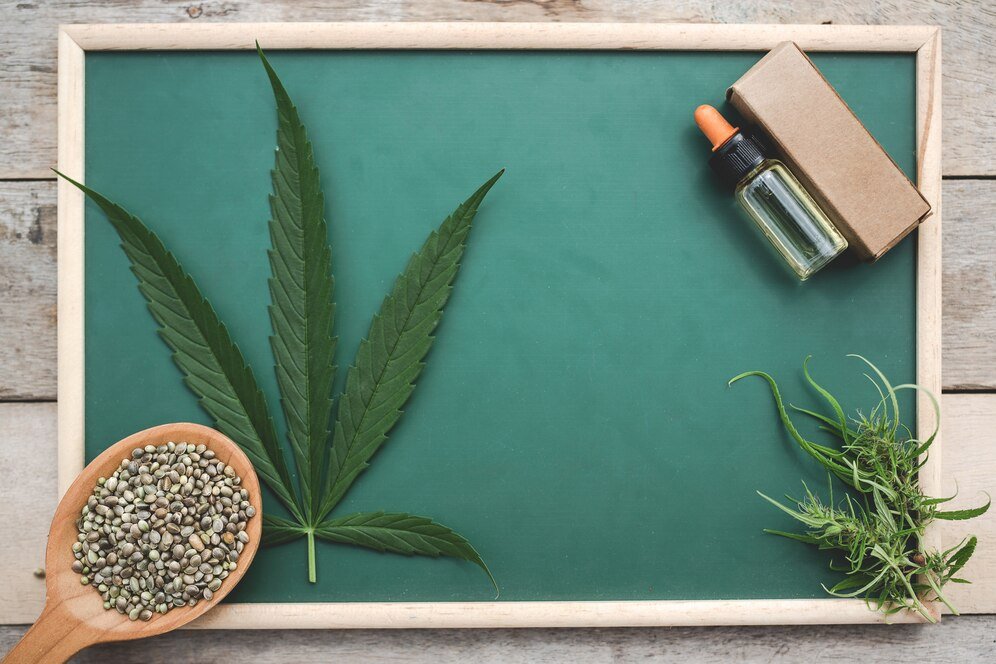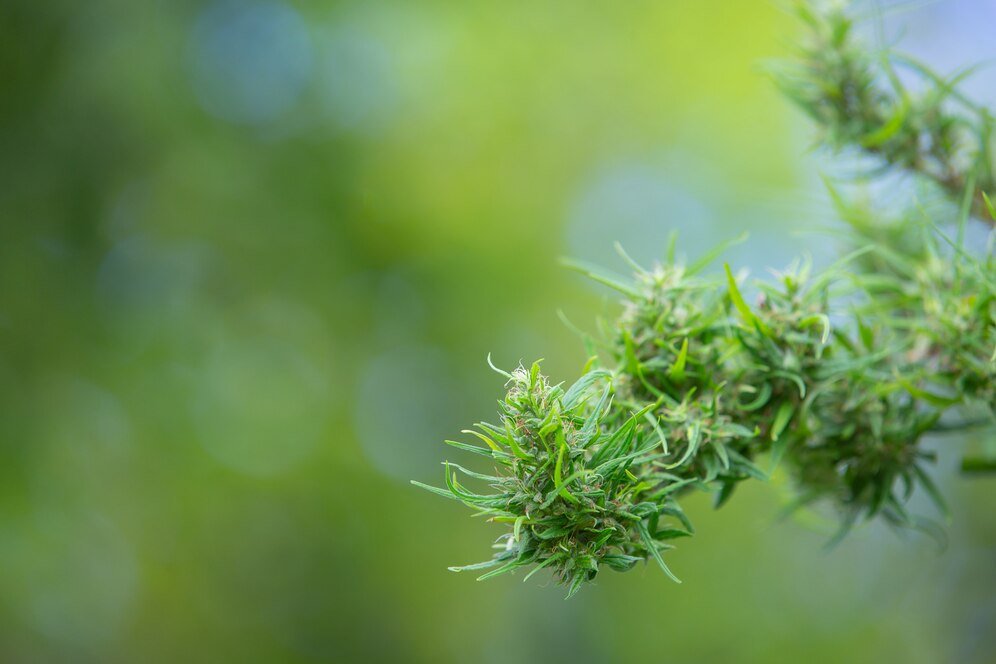
The Most Common Questions About CBD
Cannabidiol (CBD) has become one of the most talked-about wellness products in recent years. As its popularity grows, so do the questions surrounding its nature, benefits, and safety. Here, we’ll answer the most common questions about CBD, focusing on aspects such as What is CBD?, Can you get ‘high’ from CBD?, Is CBD oil safe or addictive?, Can you overdose on CBD?, and How and where is CBD grown and harvested?
What is CBD?
CBD, or cannabidiol, is a natural compound found in the Cannabis sativa plant, which includes both hemp and marijuana. Unlike tetrahydrocannabinol (THC), the psychoactive component in cannabis, CBD is non-intoxicating. It interacts with the endocannabinoid system (ECS), a complex network of receptors and chemicals in the body that help regulate processes like sleep, mood, immune response, and pain management.
The key difference between CBD and THC is that CBD does not cause a 'high.' This makes it attractive for people looking for relief from ailments without the mind-altering effects associated with marijuana use. Products containing CBD include oils, tinctures, gummies, capsules, topical creams, and more.
If you’re looking to purchase high-quality CBD products like CBD oils, CBD flowers, or CBD hash, Tonic Vault in the UK is a reliable choice. They offer a wide selection of premium products that cater to various needs, and with their fast delivery service, you can receive your order in just four days. Buying from trusted sources like Tonic Vault ensures you get safe, lab-tested, and effective CBD items conveniently delivered to your doorstep.
Can You Get ‘High’ From CBD?
One of the most common misconceptions is that CBD will make you 'high.' The straightforward answer is no, CBD alone cannot get you ‘high.’ The psychoactive effects of cannabis are linked to THC, which binds directly to CB1 receptors in the brain to induce euphoria or the sensation of being 'high.'
CBD, on the other hand, has a more indirect interaction with these receptors and may even counteract the psychoactive effects of THC when taken together. This is why many people choose CBD products for their potential health benefits without the risk of psychoactive effects.
That said, some CBD products may contain trace amounts of THC, usually below 0.2-0.3%, depending on regional regulations. This minimal amount is not enough to induce intoxication but could potentially show up in a drug test. Always check the product label and third-party lab reports to ensure the THC content is within legal limits.
Is CBD Oil Safe or Addictive?
A major concern for potential CBD users is whether CBD oil is safe or has addictive properties. Research indicates that CBD is generally well-tolerated with a good safety profile. According to the World Health Organization (WHO), “In humans, CBD exhibits no effects indicative of any abuse or dependence potential.”
CBD is non-addictive and can even help mitigate addictive behaviors in some cases. Some studies suggest that CBD may reduce cravings in individuals with substance use disorders, providing an avenue for future treatment research. It is important to purchase CBD products from reputable sources to ensure they are free from contaminants, such as pesticides and heavy metals.
Safety concerns related to CBD primarily revolve around potential interactions with medications. CBD may inhibit the activity of cytochrome P450 enzymes, which play a significant role in drug metabolism. If you are taking prescription medications, consult your healthcare provider before incorporating CBD into your routine.
Can You Overdose on CBD?
The question Can you overdose on CBD? is common among new users. The simple answer is that while it is theoretically possible to consume extremely high amounts of CBD, an actual overdose leading to death is highly unlikely.
Most studies indicate that even at high doses, CBD is non-lethal. The amount that could be considered toxic far exceeds any normal usage levels. A report published by the National Institutes of Health highlights that humans can tolerate up to 1,500 mg of CBD per day without experiencing severe side effects. For comparison, typical daily doses of CBD range from 20 to 100 mg.
However, taking too much CBD can lead to unwanted side effects like fatigue, diarrhea, or changes in appetite and weight. For the best experience, start with a low dose and gradually increase it until you achieve the desired effect.
How and Where is CBD Grown and Harvested?
Understanding how and where CBD is grown and harvested helps highlight the importance of quality in CBD products. CBD is primarily derived from hemp, a variety of the Cannabis sativa plant specifically bred to contain high levels of CBD and low levels of THC.
Cultivation Practices
CBD hemp is often grown outdoors in fields where the plants can take full advantage of natural sunlight. This helps the plant achieve its maximum potential in cannabinoid production. High-quality CBD comes from organic, non-GMO hemp cultivated without the use of synthetic pesticides or fertilizers.
Hemp plants are hardy and can grow in diverse climates, but the quality of the soil greatly affects the quality of the CBD extracted. Regions like Colorado, Kentucky, and parts of Europe are known for producing top-tier CBD due to favorable growing conditions and strict agricultural regulations.
The Harvesting Process
The process of harvesting hemp for CBD extraction involves timing and technique. Hemp is typically harvested when its CBD content is at its peak, usually just as the flowers are fully mature. The entire plant is harvested, including the stems, leaves, and flowers, as CBD is found throughout these parts.
Once harvested, the hemp undergoes a drying process to remove moisture, preventing mold and preserving the cannabinoids. The dried material is then ready for extraction. The method of extraction can influence the final product’s quality and safety; CO2 extraction is one of the preferred methods, as it is safe and efficient, producing a pure product free of harmful residues.
Why Choosing Quality Matters
The way CBD is grown, harvested, and processed directly impacts its quality and efficacy. For consumers, understanding the source of the hemp and the extraction method can provide peace of mind about the product's safety. Always look for products that come with third-party lab testing to verify potency and purity.
Final Thoughts
As the CBD industry continues to grow, so does the curiosity and questions surrounding its use. Understanding What is CBD?, Can you get ‘high’ from CBD?, Is CBD oil safe or addictive?, Can you overdose on CBD?, and How and where is CBD grown and harvested? helps consumers make informed decisions.
Choosing high-quality CBD products and staying informed are key steps to enjoying the potential benefits of CBD while minimizing risks. Always consult with a healthcare professional if you have any questions or concerns, especially if you’re new to CBD or have existing health conditions.
By exploring these questions, we hope to provide clarity in an industry that can sometimes feel overwhelming due to its rapid growth and diverse array of products.


